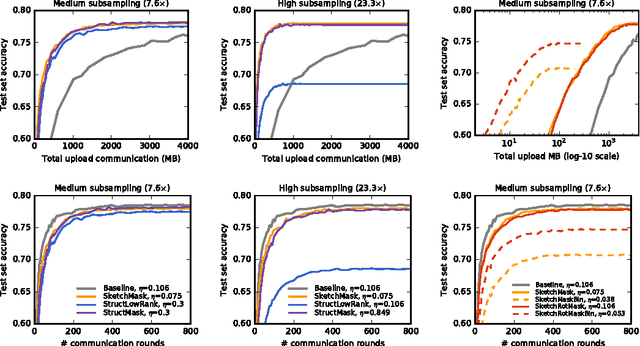Federated Learning: Strategies for Improving Communication Efficiency
Paper and Code
Oct 30, 2017
Federated Learning is a machine learning setting where the goal is to train a high-quality centralized model while training data remains distributed over a large number of clients each with unreliable and relatively slow network connections. We consider learning algorithms for this setting where on each round, each client independently computes an update to the current model based on its local data, and communicates this update to a central server, where the client-side updates are aggregated to compute a new global model. The typical clients in this setting are mobile phones, and communication efficiency is of the utmost importance. In this paper, we propose two ways to reduce the uplink communication costs: structured updates, where we directly learn an update from a restricted space parametrized using a smaller number of variables, e.g. either low-rank or a random mask; and sketched updates, where we learn a full model update and then compress it using a combination of quantization, random rotations, and subsampling before sending it to the server. Experiments on both convolutional and recurrent networks show that the proposed methods can reduce the communication cost by two orders of magnitude.
 Add to Chrome
Add to Chrome Add to Firefox
Add to Firefox Add to Edge
Add to Edge